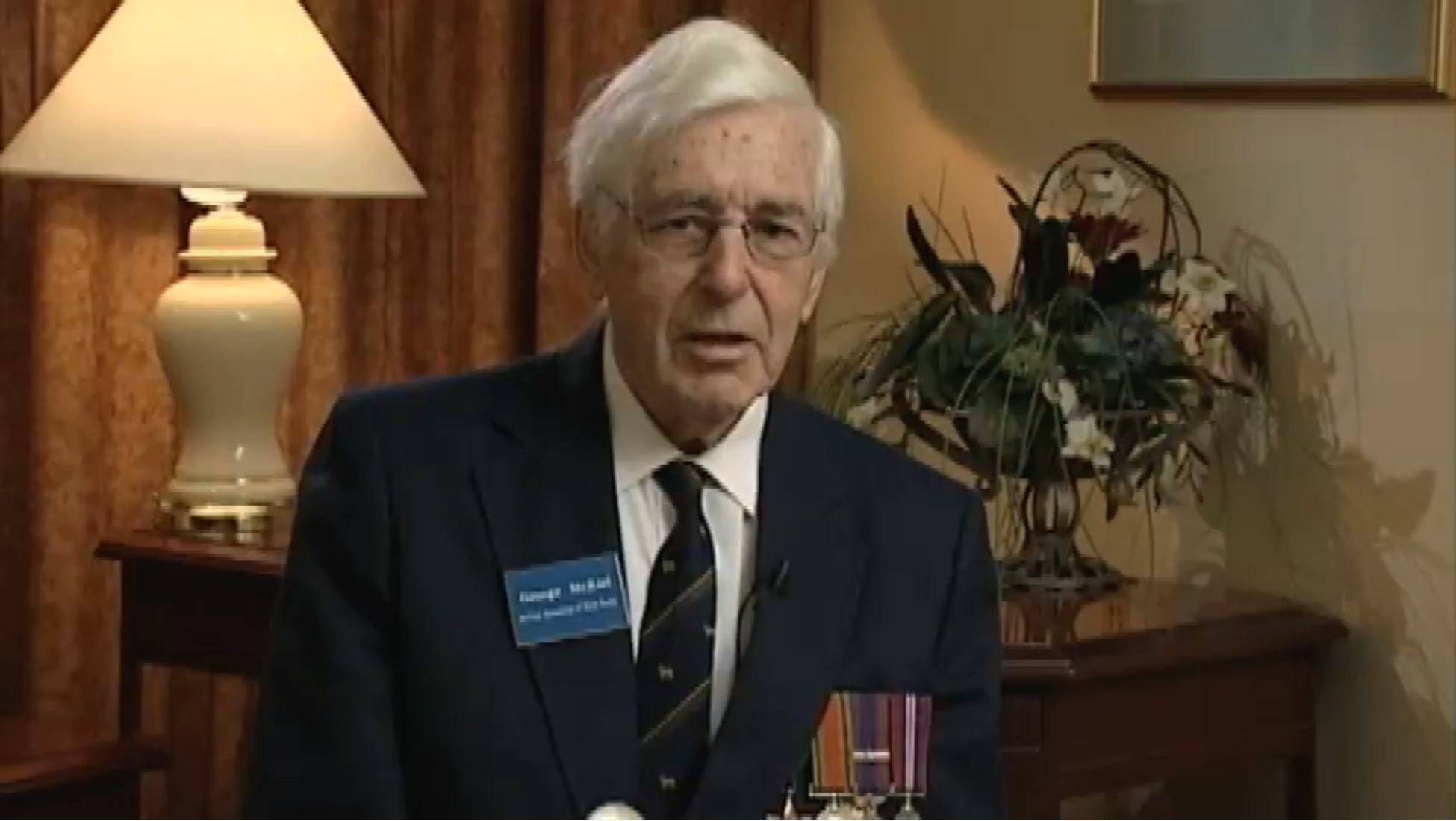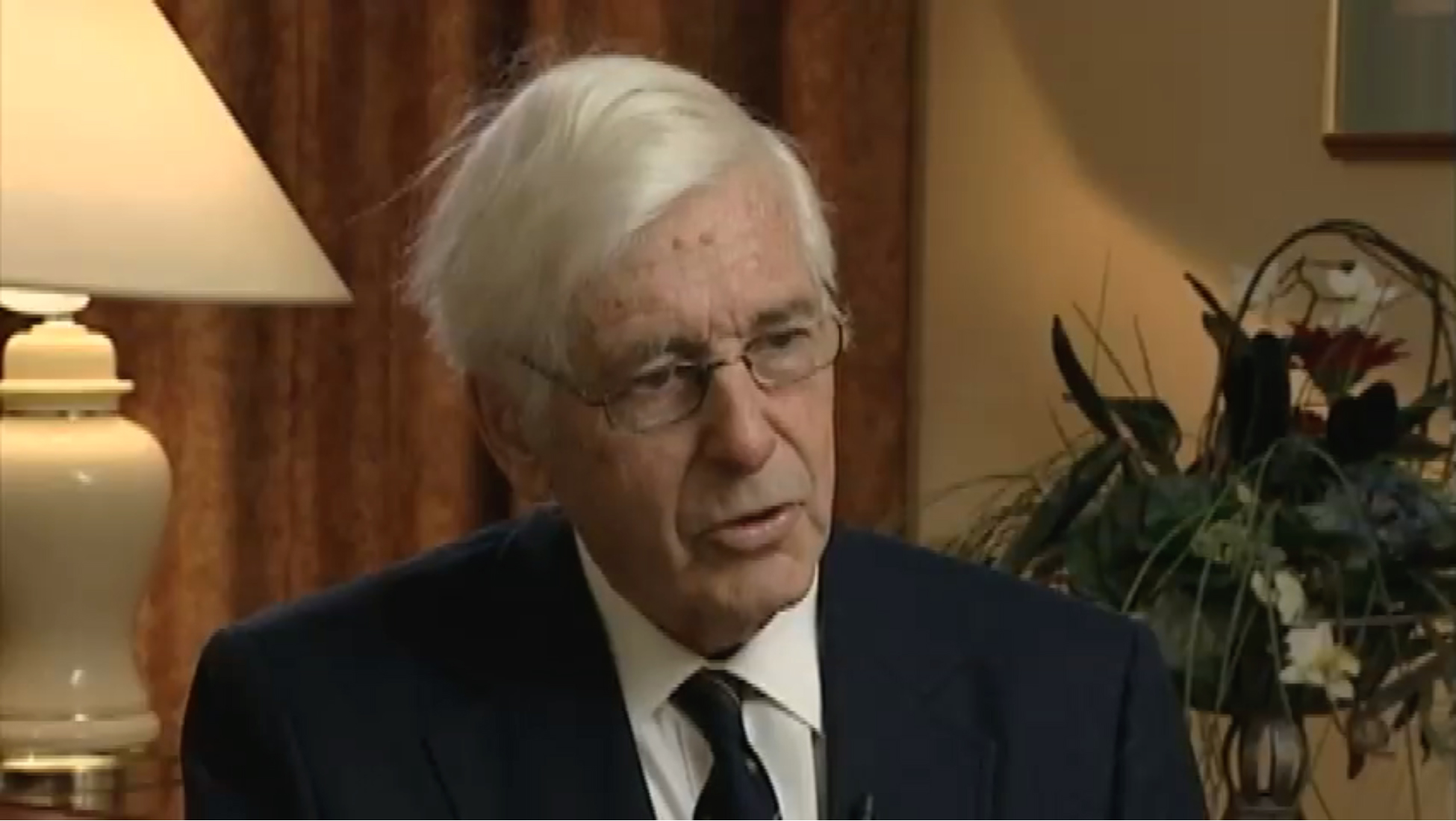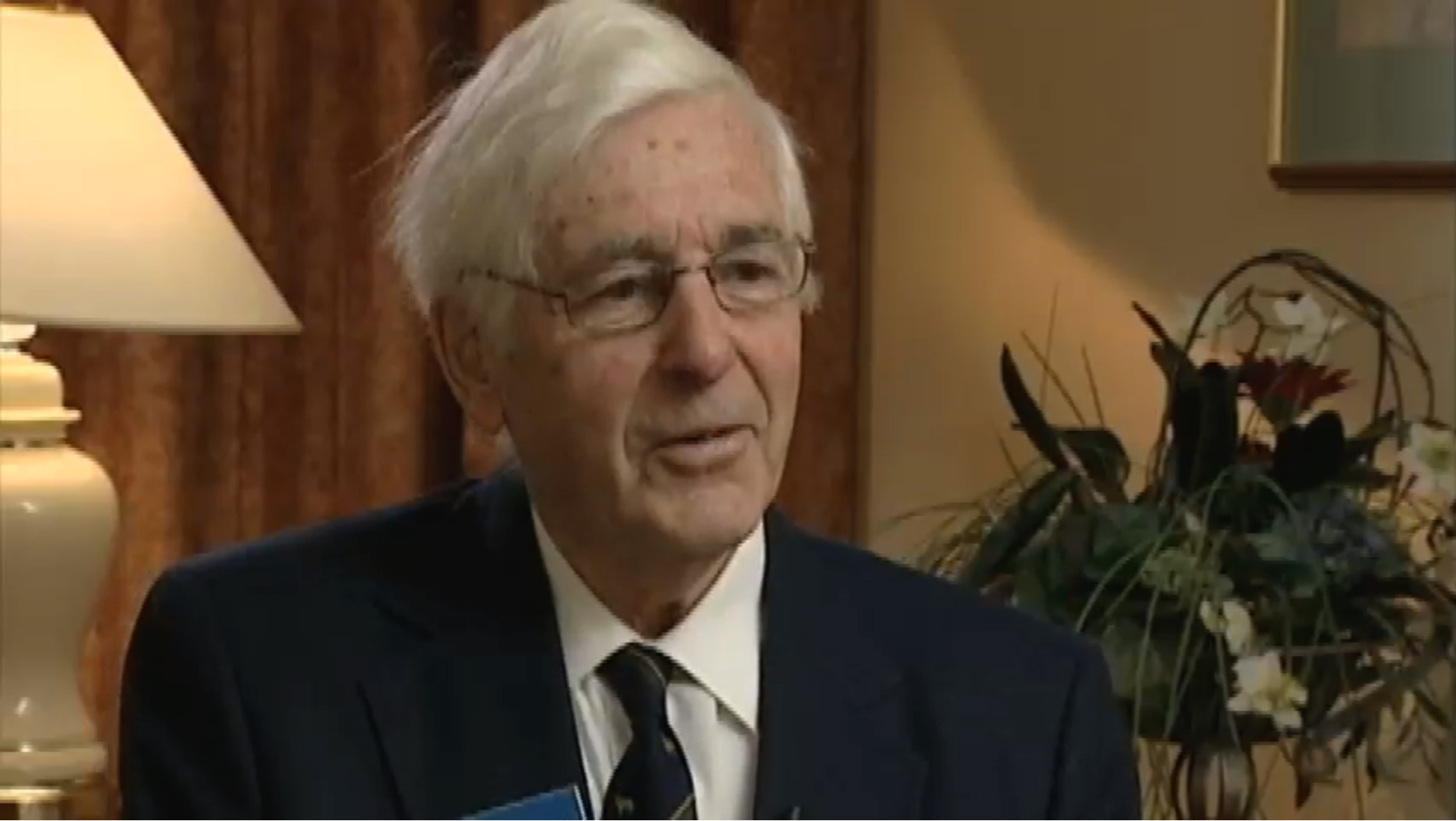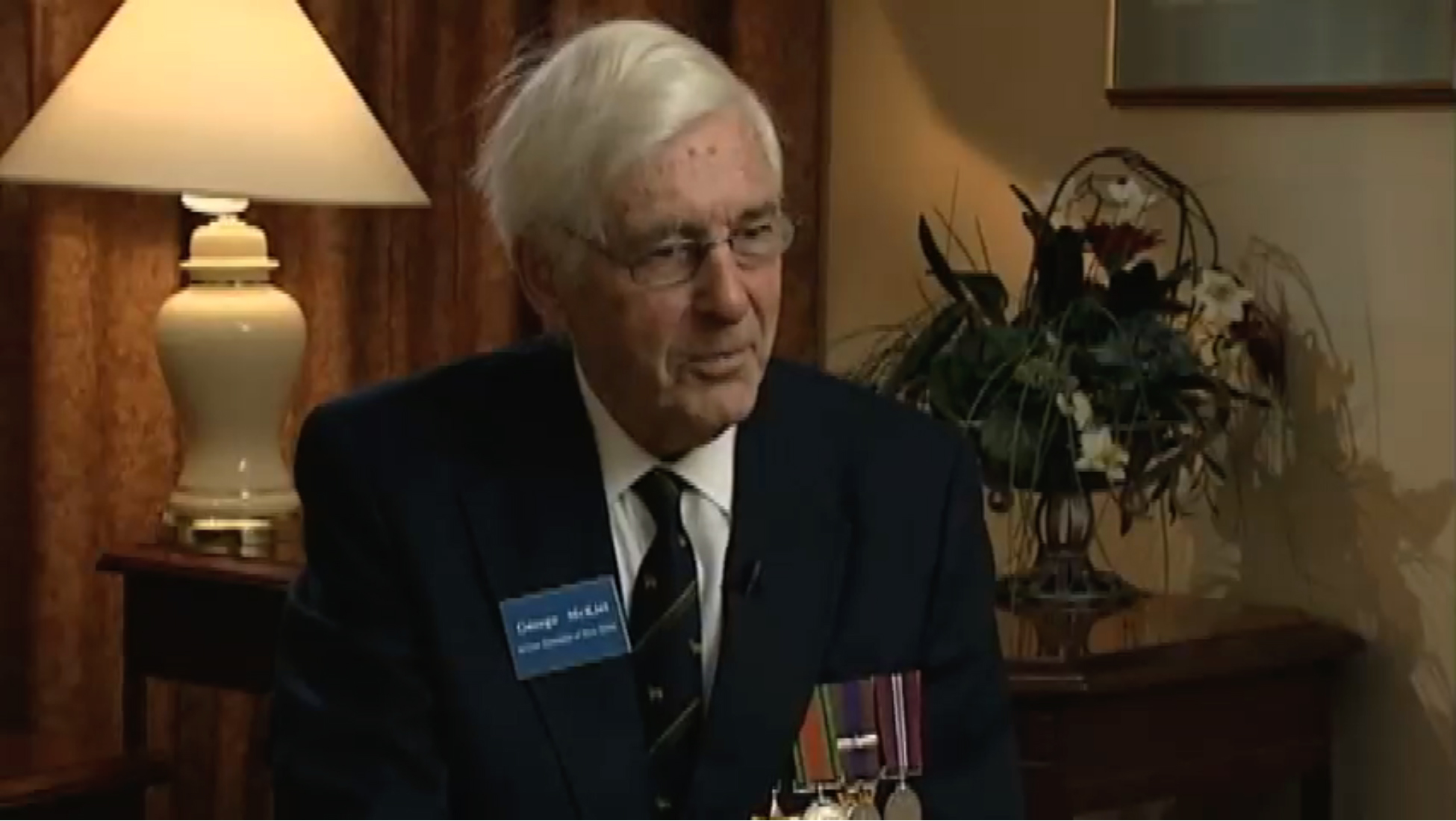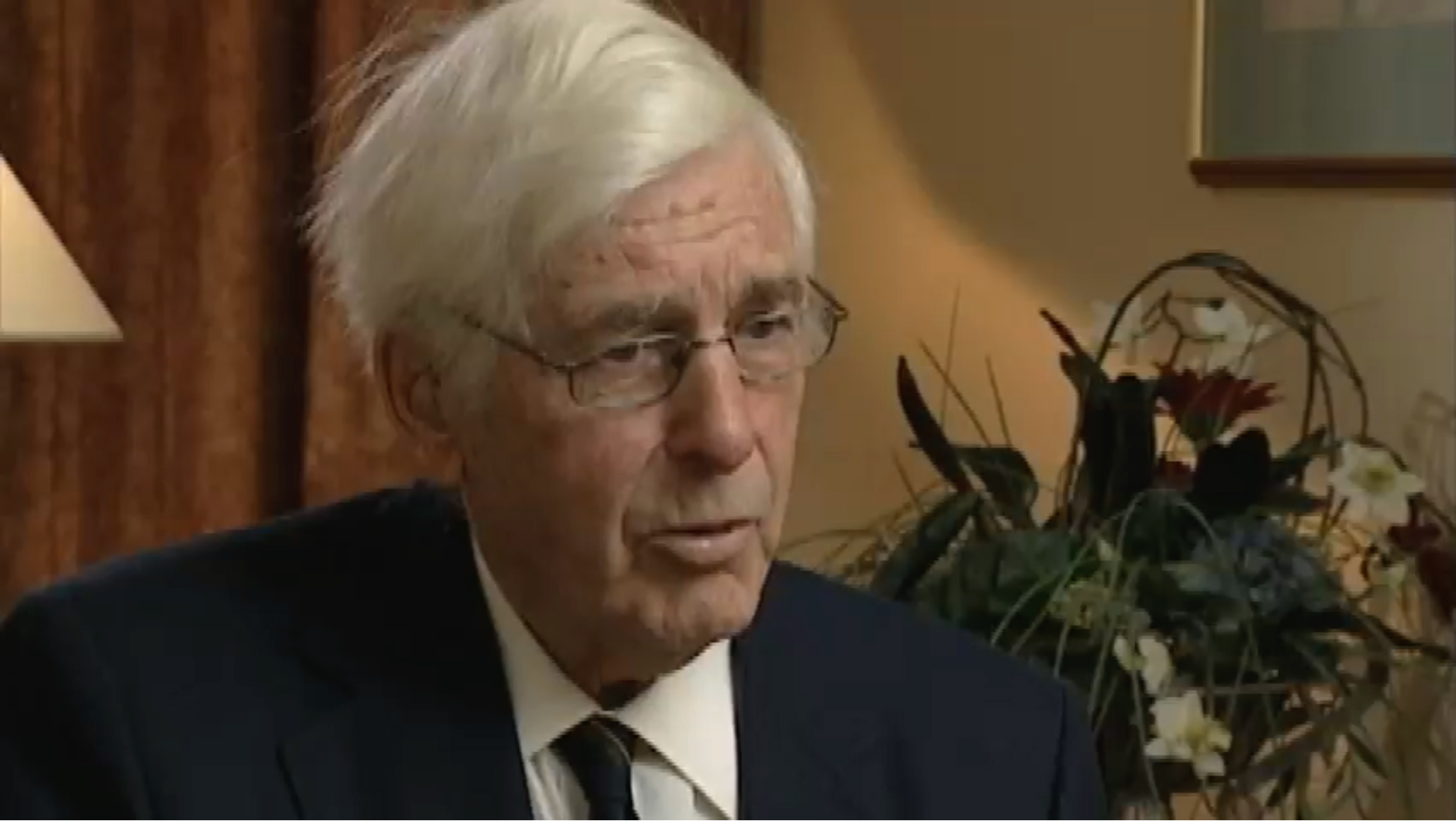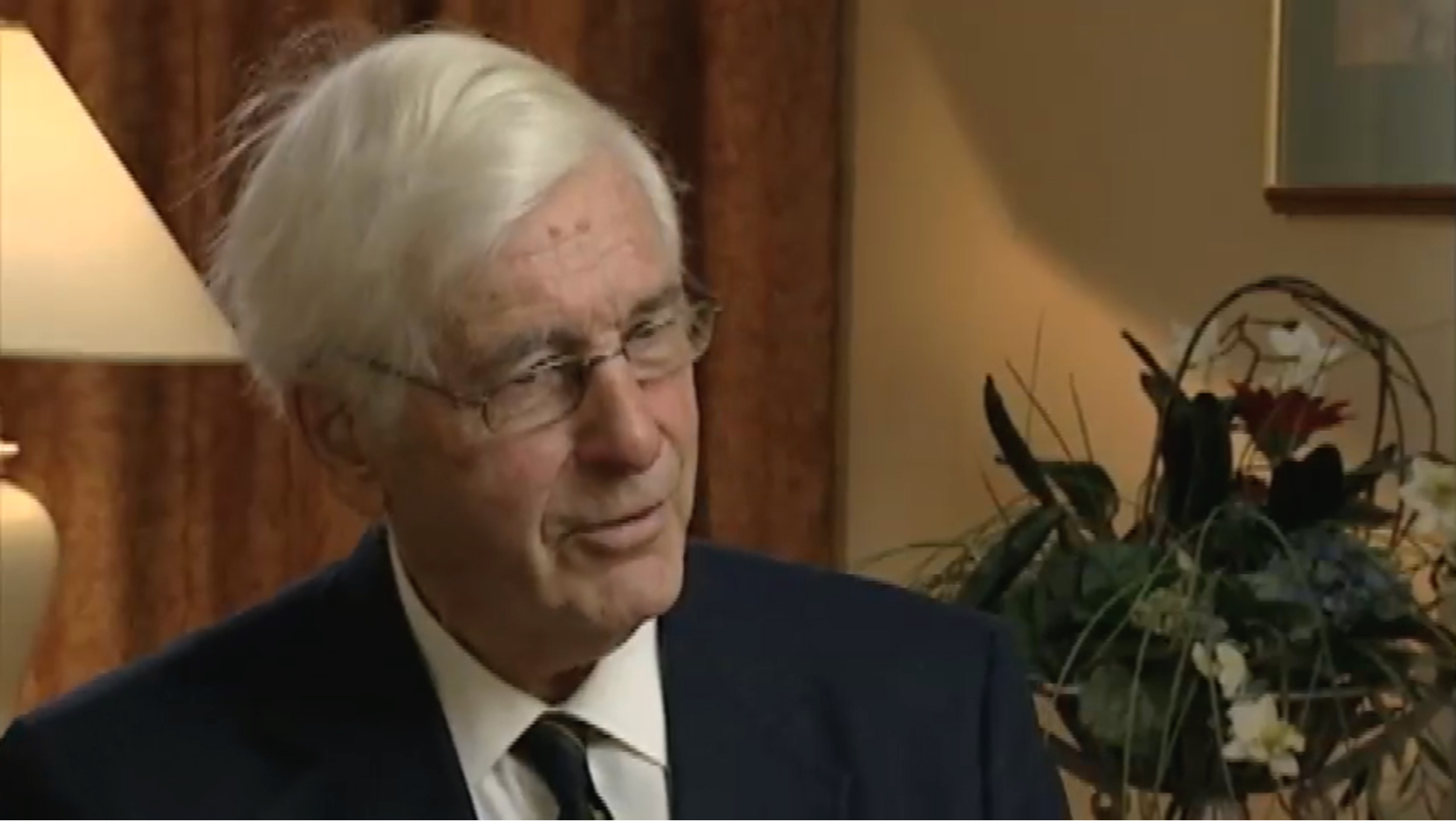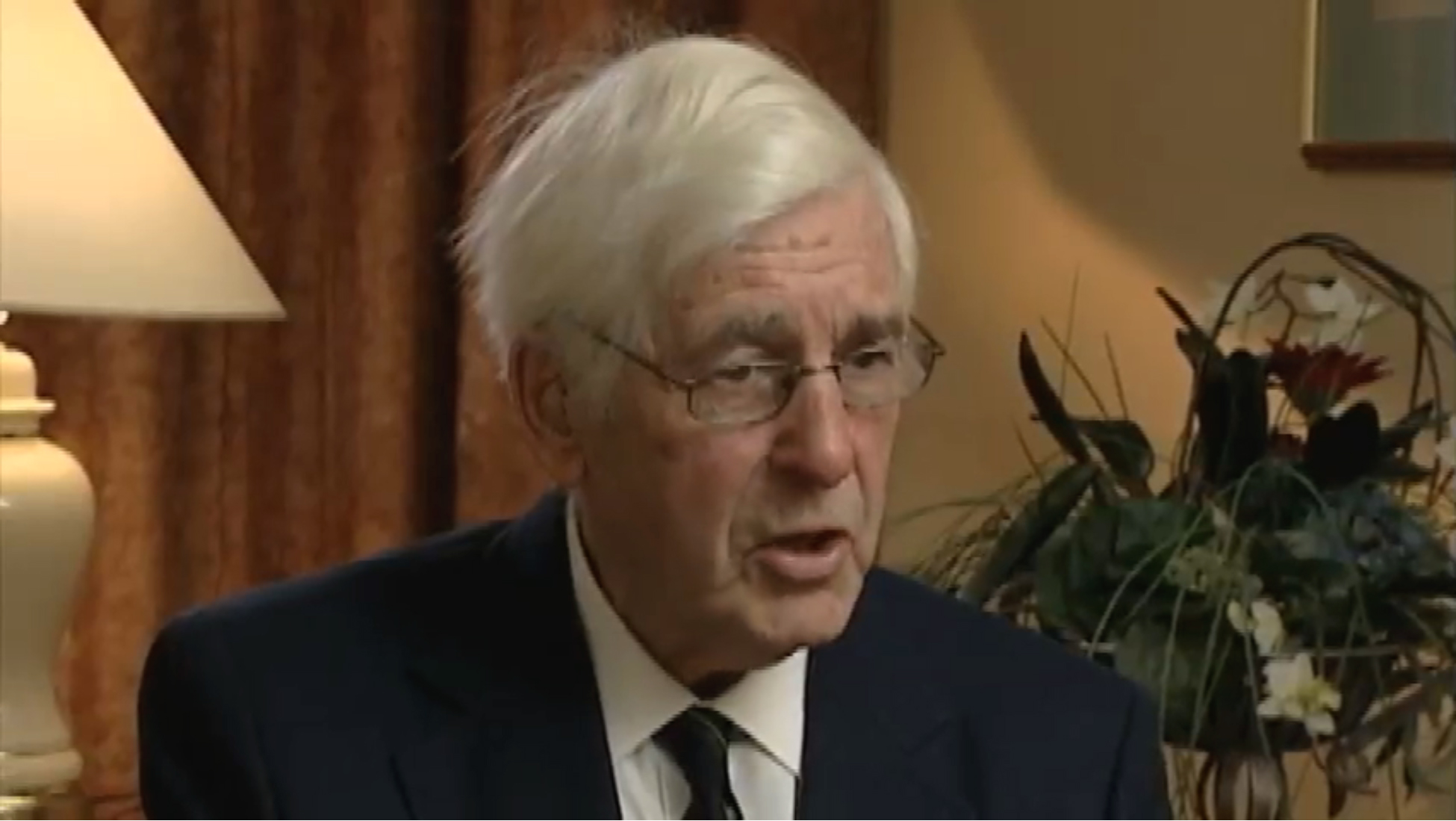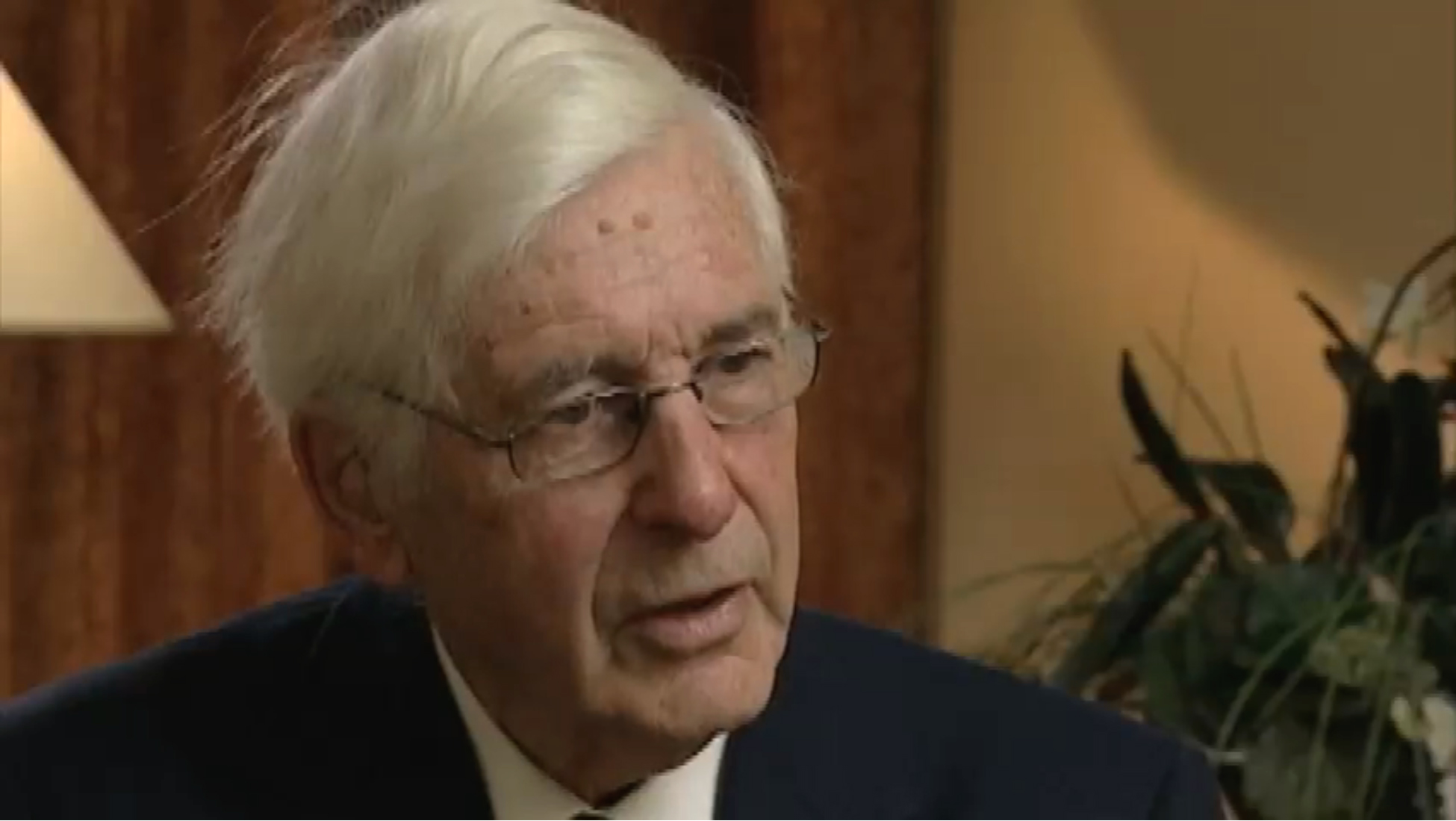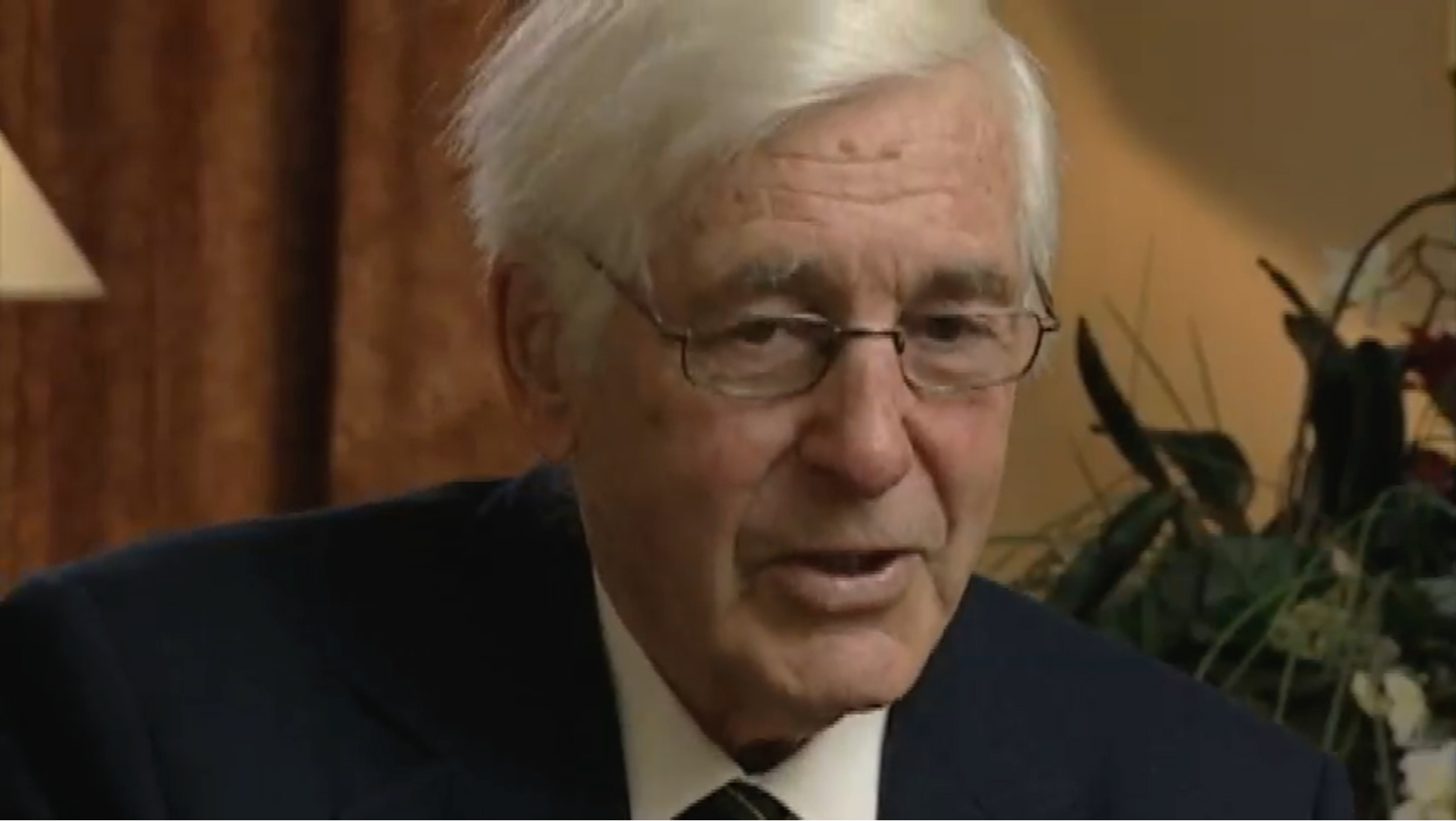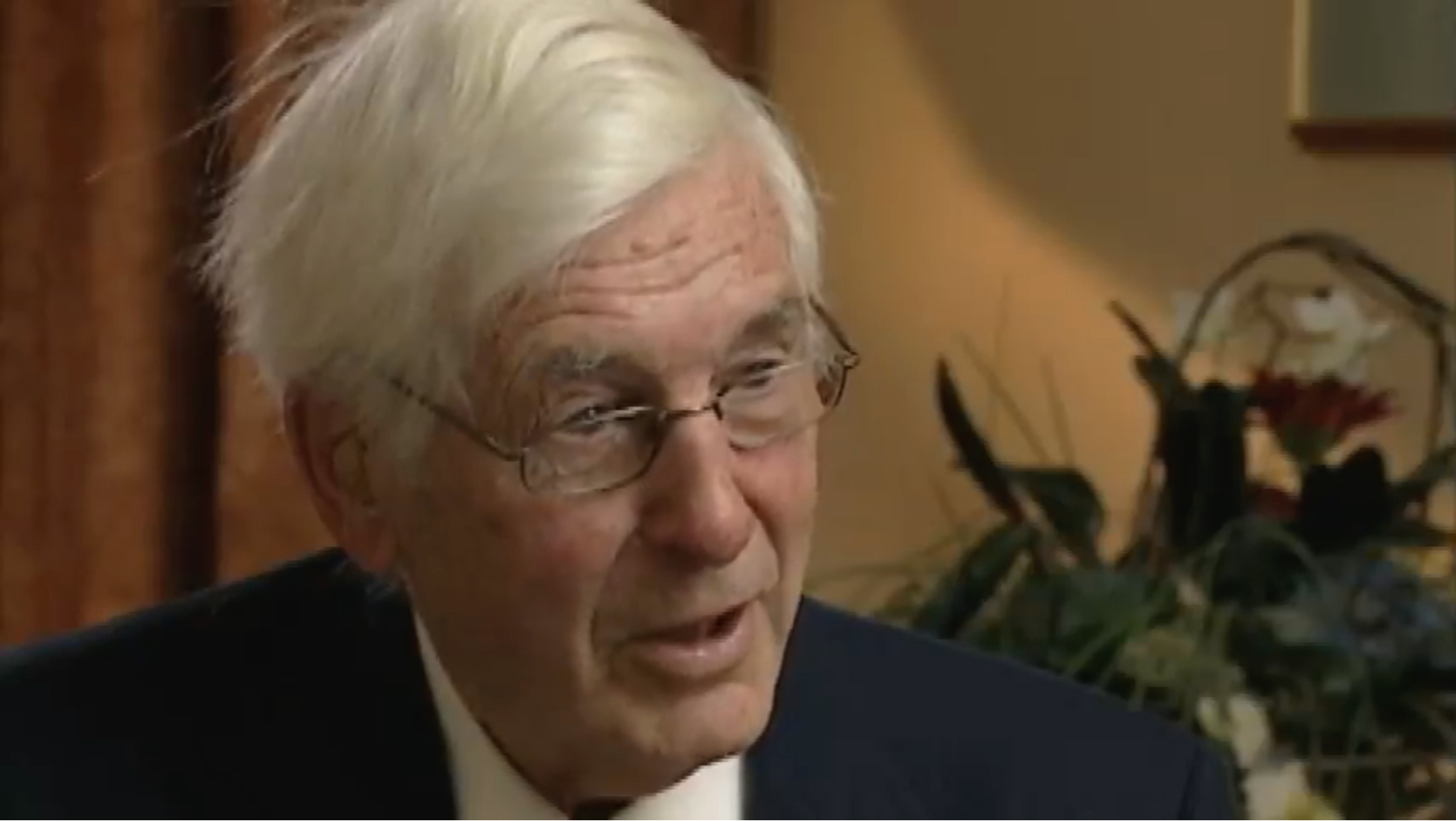And when the sound of artillery and aircraft spotting planes
started to arrive, we realized that the Russians were fairly
close to us. They, in fact, came right up to the river Oder.
And then, suddenly, the Germans came to their senses, I guess,
and said, "Oh, we've got good hostage material here. We'd better
hang on to these guys." And, so, they suddenly came into the
camp one day and said, "You have 12 hours and then you're
gonna be moved, you're gonna march." And that was in January.
Well, the Russians got as far as the river Oder and then they
regrouped, and in that interval, we were taken out of the camp
with whatever we could carry, and some managed to make very quick
sleds that they could pull on the snow. And, as a result of that,
the camp was evacuated, totally, and we joined a throng of
evacuees that were racing ahead of the Russians, and all the
German armour that was busy retreating westward. And, so,
they kept us on the road for five days and eventually we got to
a railhead. They loaded us into horse cars. There was supposed
to be eight horses but, instead, they put in 120 or 150 men.
So, we thought, isn't this ironic, we've lasted this long,
we've got this far, and now we are going to end up in a railway
marshalling yard, and sure as the dickens, we're gonna be bombed
by our own aircraft. That'll be the end of us. But, for some
miracle, it didn't happen. We got through to a condemned navy
camp up near Bremen, and it was condemned because it was
so rat-infested and so, such bad shape, but they put extra guards
on us. And within about two days, there wasn't a rat in the place
that we had very high protein soup for a few days. And we lasted
there for a while, but it was kind of depressing because we were
right next door to a launch site for the V weapons that were
being shipped out to England. And we hadn't realized that they
were so advanced, but we could see this rocket lifting up with
the warhead on it and we thought, that's the secret weapon that
Hitler's been talking about. We've lost the war. Our morale sort
of plummeted. And then along in April, early April, the guards
came in again and said, "Tomorrow, you move. We're giving you
another ten hours, and you'll be on the road." And we said,
"Oh no. We know where the British are. They've crossed
the Rhine. We're sitting. We're not moving, we're staying
right here." The next morning, it wasn't the usual guards.
The SS came in with machine guns and said, "Raus, raus."
And, so, we said, "Yes, yes. We'll go." So, they marched us
across Schleswig Holstein in the last month of the war. It was
agreed amongst ourselves that it would be far more judicious
if we stayed together as a large group, because there were still
SS and Hitler Jugend, young people who were so, still so
committed and so crazy and couldn't see that the war was just
ending. And so we did. We stuck pretty much together, and it
turned out to be actually a very interesting walk across that
beautiful part of north Germany. And we were on the road, I guess
for three to four weeks and then eventually got up to, close to
Stettin on the Baltic. And low and behold, the British overtook
us and Montgomery's, Cheshire Regiment actually wheeled in
with an armoured car and lifted the top, and this pimply-faced
youth got out and said, "You're free!" And, so, they took us
back by lorry to Lunenburg Heath where Montgomery had his
headquarters and then eventually flew us back to England as well.



